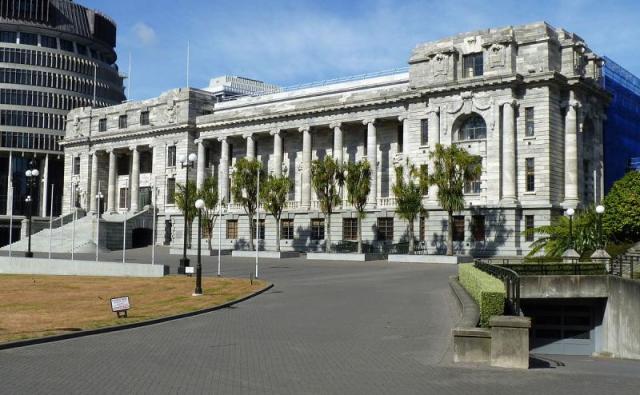Submissions open on government Budget Policy Statement 2021; reports on the state of the nation
Thu 25 Feb 2021
The government is asking for feedback on priorities for the 2021 Budget. Reports from the social sector highlight continuing unmet needs.

The Finance and Expenditure Committee is inviting submissions on the Budget Policy Statement 2021.
The deadline to make a submission is 15 March 2021.
The Budget Policy Statement 2021 sets out the Government’s priorities for the 2021 Budget. It outlines five wellbeing priorities:
- "Just Transition – Supporting the transition to a climate-resilient, sustainable and low-emissions economy while building back from COVID-19.
- Future of Work – Enabling all New Zealanders and New Zealand businesses to benefit from new technologies and lift productivity and wages through innovation, and support into employment those most affected by COVID-19, including women and young people.
- Māori and Pacific – Lifting Māori and Pacific incomes, skills and opportunities, and combatting the impacts of COVID-19.
- Child Wellbeing – Reducing child poverty and improving child wellbeing
- Physical and Mental Wellbeing – Supporting improved health outcomes for all New Zealanders and keeping COVID-19 out of our communities."
Finance Minister Grant Robertson announced the Budget Policy Statement in a speech on 9 February 2021. For more information see the Treasury's Guide to the Budget process.
Update: The Government has announced that Budget 2021 will be delivered on 20 May 2021.
Related news
The Salvation Army has published their annual State of the Nation Report 2021. Commenting on the report's findings, Lt-Colonel Ian Hutson, Salvation Army Social Policy and Parliamentary Unit Director said:
“The Government’s measures to respond to the Covid-19 crisis have been significant and helped greatly to lessen impacts. However, this year’s report shows that the poorest and most vulnerable in our nation have suffered the most from these serious disturbances from Covid-19, leaving many with a gloomy future."
Key findings highlight increasing disparities between Māori and non-Māori, increasing poverty and rising demand for social housing. The report also includes analysis of publicly available statistics related to child protection and family violence. It noted that while there has been a decrease in the number of children in state care, there has been an increase in serious offences against children. Statistics related to family violence are difficult to interpret as the Family Violence Act 2018 changes have affected how data is reported.
In February 2021, Stats NZ released Child poverty statistics for the year ending June 2020 finding "all measures of child poverty were trending downwards, across the two years since year ended June 2018, with some statistically significant decreases." Assistant Māori commissioner Glenis Philip-Barbara and Children’s Commissioner Judge Andrew Becroft called on the government to take 'bold action' to address child poverty, including the disparities experienced by Māori and Pacific children and children with disabilities. Janet McAllister from Child Poverty Action Group highlighted that, for the first time, this report includes statistics about children with disabilities and children in households where at least one member has a disability. Further commentary from advocates calling on government to take action is included in the related media below.
The Social Service Providers Aotearoa newsletter Kia Mauri Ora, Issue 5 (February 2020) looks at how social services survived COVID-19 and provides an update on the work to address the pay gap between government and non-profit social workers. While work is underway to reach a pay equity settlement, it was noted that "Under-funding of the NGO sector is the basis of the pay gap. In parallel with advancing this [pay equity] claim, we are also seeking full and fair funding of contracted services."
CommVoices published their fourth biennial State of the Sector Survey in November 2020, highlighting in the 2020 Snapshot Summary that community and voluntary organisations continue to experience increasing demand with gaps in funding:
"The overwhelming majority of surveyed organisations (over 80%) are dealing with ongoing, increased demands and workloads (in many cases at least since 2011), often without a corresponding increase in funding. They also continue to experience increasing complexity in the issues they need to deal with. The failure of funding to keep up with increased demands and increased costs is by far the most commonly cited, unprompted concern."
Non-government organisations have published Briefings to incoming ministers and shadow CEDAW reports which highlight key priorities to address family and sexual violence in Aotearoa New Zealand. See our related news stories for further information.
Related media
Benefit discrimination needs to stop: CPAG, Waatea News, 24.02.2021
Child poverty declines, but Māori, Pacific poverty rates 'profoundly disturbing', Stuff, 23.02.2021
Government action reduces child poverty, Beehive media release, 23.02.2021
Boost benefits say welfare NGOs, Waatea News, 22.02.2021
Survey finds 69% want income support for those in need increased, RNZ, 22.02.2021
Claims rising incomes only shows growing disparity in society, RNZ, 17.02.2021
Image: Olya Kobruseva from Pexels








